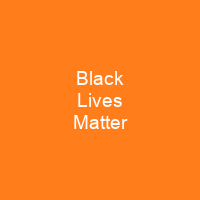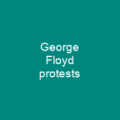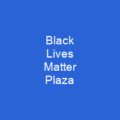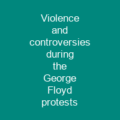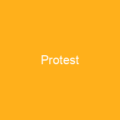Understanding the Black Lives Matter Movement
What is Black Lives Matter? It’s a decentralized political and social movement that aims to highlight racism, discrimination, and racial inequality experienced by black people. The movement began in response to high-profile killings of Trayvon Martin, Michael Brown, Eric Garner, and others.
The Origin
Where did it all start? The slogan ‘Black Lives Matter’ was originated on social media in 2013 by activists Alicia Garza, Patrisse Cullors, and Opal Tometi following the acquittal of George Zimmerman in the shooting death of Trayvon Martin. This hashtag quickly gained traction and international attention.
Grassroots Movement
The movement is grassroots and decentralized, with no formal hierarchy. Local chapters are autonomous and operate without a central structure or hierarchy. As of 2021, there are about 40 chapters in the United States and Canada. Each chapter operates independently but shares common goals.
Activities and Impact
What do BLM activists do? They engage in various activities including street demonstrations, protests, and involvement in political campaigns. The movement gained widespread attention and support during its peak in 2020, with an estimated 15 to 26 million people participating in protests.
How has it affected society? BLM has had a significant impact on internet and social media usage, with the hashtag #BlackLivesMatter being chosen as the word of the year in 2014 by the American Dialect Society. The movement’s influence can be seen in various media, including documentaries, television specials, and public art installations.
Support and Funding
Who supports BLM? Support for the movement has been strong among people of color, with high percentages of African Americans, Hispanics, and Asian Americans expressing support as of 2023. The Black Lives Matter Global Network Foundation raised $90 million in 2020, receiving donations from various sources including the Ford Foundation.
How does it get funded? The movement has received over $10.6 billion in donations between May 2020 and December 2020. This funding is used to support various initiatives, including policy changes related to criminal justice reform and community resources.
Protests and Demonstrations
Where have BLM protests taken place? Protests have occurred across the United States and internationally. Notable events include rallies in Cincinnati, NJ, DC, NC, PA, TX, MD, CA, and Chicago, as well as protests against police violence in response to killings of Samuel DuBose, Jonathan Sanders, Michael Brown, Jeremy McDole, Jamar Clark, and Laquan McDonald.
What are some key moments? The murder of George Floyd in 2020 sparked a wave of protests across the US and worldwide. Over 450 protests were held nationwide, with Mayor Muriel Bowser announcing part of the street outside the White House would be renamed to Black Lives Matter Plaza.
International Impact
How has BLM spread globally? The movement’s influence extends beyond the United States. In Australia, protests took place in Melbourne and other cities following George Floyd’s murder. In Denmark, Black Lives Matter Denmark organized a demonstration that attracted 15,000 participants.
Criticism and Controversies
What are some criticisms of BLM? Critics argue the movement is anti-police and promotes violence against law enforcement. Some also claim it has sidelined black women’s experiences in favor of black men’s experiences. Additionally, there have been allegations of mismanagement of funds by the organization Black Lives Matter Global Network Foundation.
Future Outlook
Where is BLM headed? While support for the movement remains strong among people of color, its future direction and impact remain uncertain. The movement continues to face challenges but also opportunities to drive meaningful change in society.

As the Black Lives Matter movement continues to evolve, it remains a powerful force for change. Whether through protests, policy changes, or cultural shifts, BLM’s impact on society is undeniable. The journey towards true equality and justice for all continues, with each step bringing us closer to a more inclusive future.
You want to know more about Black Lives Matter?
This page is based on the article Black Lives Matter published in Wikipedia (retrieved on March 5, 2025) and was automatically summarized using artificial intelligence.
